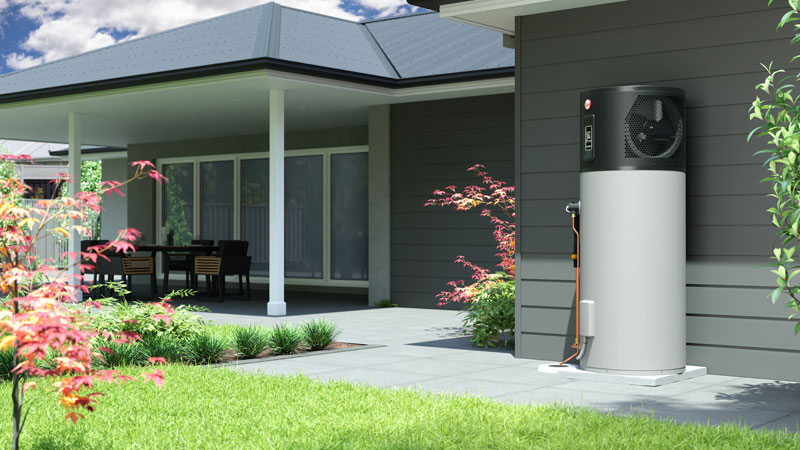5 Energy Saving Tips for Water Heating
7 November 2024
Saving energy is a goal shared by everyone. Not only does it lower your monthly bills, but it’s also beneficial for the environment and contributes to the collective good of the country. Energy, as we are increasingly aware (particularly with the supply concerns highlighted this winter), is not a limitless resource, so we need to conserve it whenever possible.
As water heating typically makes up around a third of household energy bills for Kiwis, this is one of the first areas to consider when trying to reduce overall energy consumption. So, with that in mind, here are five of the best ways to lower your water heating energy bill.
1. Time Those Showers (and Avoid Baths)
Shorter showers are the obvious place to start – and for good reason. According to Gen Less research, cutting your shower time from 15 minutes to 5 minutes can save you around 66 cents per shower, which adds up to about $5 per person per week.[1] If you can reduce your shower time to just one 3-minute shower per day per person, your household could enjoy some solid savings. However, don’t feel too guilty about showering, as it is still much more efficient than taking a bath!
2. Fill the Dishwasher
Another daily activity where you can save on hot water usage is how you use your dishwasher. It’s tempting to run the dishwasher every night so you can wake up to clean dishes, but if the dishwasher isn’t completely full, you aren’t making the best use of your hot water. To cut down on your energy bill, only run full loads in the dishwasher. Most modern dishwashers also have an eco-setting, which, depending on the model, reduces the amount of hot water used per cycle.
3. Fine-Tune Your Hot Water Heater
One of the most effective ways to reduce your hot water energy bill is by optimising your hot water heater. In NZ, the most efficient way to heat your water is with heat pump water heaters. Heat pump water heaters are highly efficient because they use heat from the outside air to keep your water hot. Since there is always heat in the atmosphere to harness, heat pump water heaters provide a reliable, efficient, and sustainable way to reduce water heating energy consumption. The Rheem AmbiPower range®, for example, can save you over 70% on your water heating costs compared to traditional heaters.
Electric water heaters are another great option that are more efficient than traditional gas water heaters. Unlike many other countries, between 80-85% of all electricity in NZ is generated from renewable energy sources,[2] so by going electric, you’re also reducing your household’s overall impact on the environment.
An additional tip for those who want to leave no stone unturned is to check the insulation of your hot water heater. Older models and certain brands may only use the bare minimum insulation, meaning heat is lost from the unit over time. This could lead to significant wasted energy – and wasted money on energy bills. Rheem, in contrast, only use high-quality insulation, and every Rheem water heater meets or exceeds NZ MEPS (Minimum Energy Performance Standards).
4. Use Flow Control Aerators and Change Showerheads
An often overlooked but simple way to reduce hot water usage is by adding flow control aerators to all your taps. These cost between $10 and $30 and, according to Gen Less, halve the volume of water you use.[3] You may notice a slight reduction in pressure, but this small sacrifice can lead to significant savings on your power bill. Similarly, you can change your showerhead for one with an efficient flow rate. You should aim for showerheads that flow at 8 to 9 litres per minute (standard showerheads typically have a flow rate of around 10 litres per minute).[4] By making these small, cost-effective changes, you can make a big impact on your monthly energy costs.
5. Use a Cold Wash More Often
We’ve saved the simplest tip for last – wash your clothes with cold water as often possible. This is a very easy and tangible way to reduce your energy bill, as you save around 25 cents per wash when using cold water.[5] A hot water clothes wash can use almost 10 times more electricity than a cold wash[6] – so keep that in mind next time you’re considering a hot wash!
Individually, these five steps may seem insignificant, but together, they can lead to a noticeable reduction in your monthly energy bill. Even better, you’ll also be lowering your home’s carbon footprint, which benefits both you and your country!
[1] https://genless.govt.nz/for-everyone/at-home/improve-energy-efficiency/heat-water-efficiently/
[3], [4], [5], [6] https://genless.govt.nz/for-everyone/at-home/improve-energy-efficiency/heat-water-efficiently/



